



Environmental sustainability is a core part of our DNA and has always been one of our strongest passions. It is not something we work on, in addition to our operations. On the contrary, environmental sustainability is part of our daily life, and is a key element in our operations.
At Dinant we take environment protection and conservation of the ecosystem as a priority. All our actions are framed in the principle of Sustainable Development, and are based on compliance with local environmental legislation and other requirements under international regulations, to which we, at Dinant, have voluntarily adhered.
47% of the electricity consumed at Dinant comes from its own sources.
In the Agribusiness area, more than 80% of the electrical energy is displaced with our own renewable sources.
From 2019 to 2022, an increase from 80% to 99% in the displacement of fossil fuels with own renewable sources in Agribusiness was achieved.
MORE THAN 135 million cubic meters of biogas recovered since its creation in 2008.
We have displaced 112,941,090 kg CO2eq in the period from 2019 to 2022, with our own renewable sources.
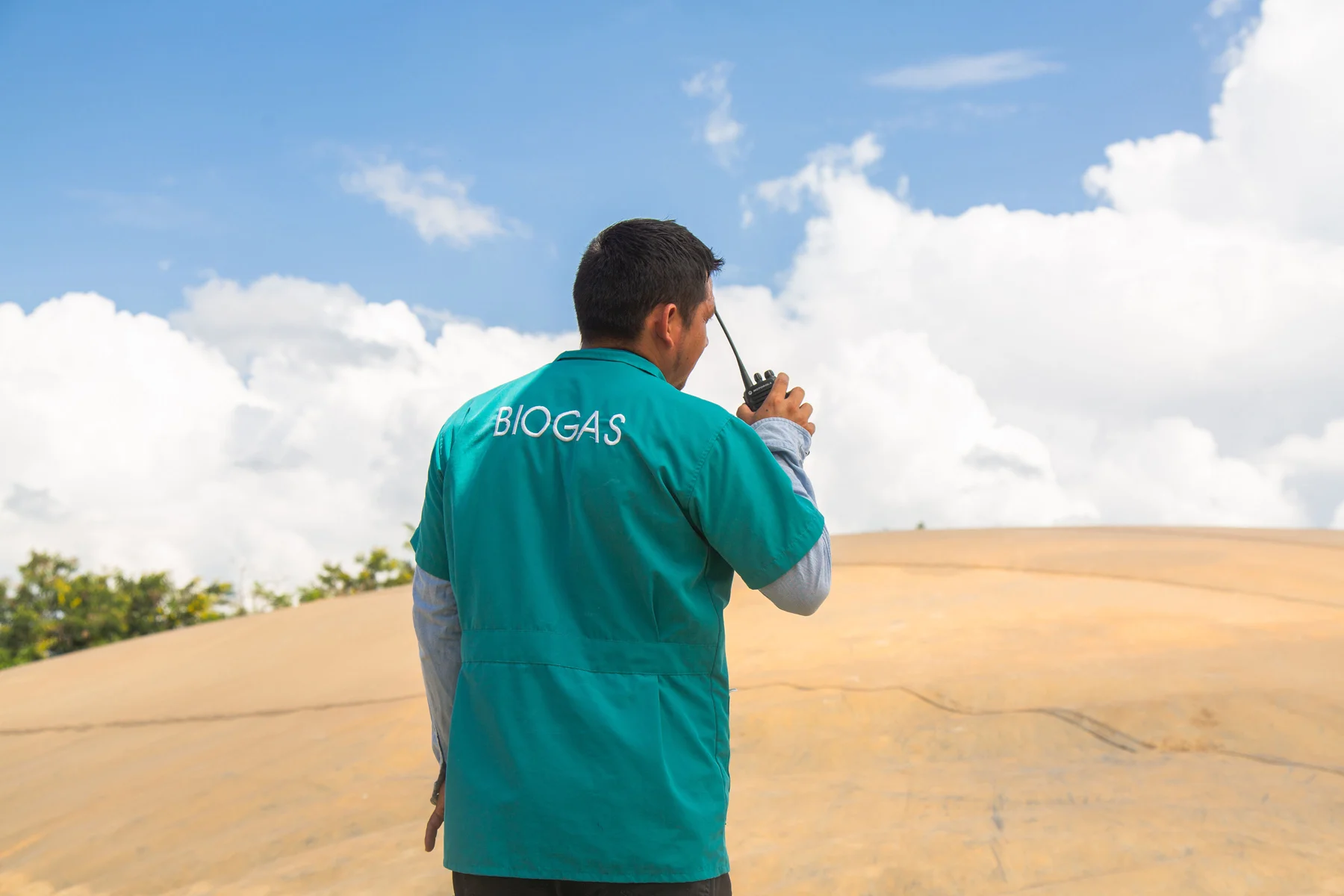
We are committed to energy self-sufficiency through the sustainable use of our own renewable sources.
Thus, in the agribusiness division we are making use of biomass (fiber, husk or shell) for the cogeneration of electrical energy, and in the same way, the valuation of effluents for the generation of biogas, with which we create and displace fossil fuels, either with steam or with biogas.
In 2022, 99% of fossil fuels and 93% of electrical energy were displaced from non-renewable sources with our own renewable sources
This has allowed the Company to reduce the use of bunker by almost 11 million gallons and diesel by more than 1 million gallons during the same period..
Water consumption in the Company's operations is constantly monitored as part of the rational and responsible use that the company maintains. Likewise, industrial processes implement options to reduce consumption, such as oil extraction plants, where they use technology with efficient equipment that allows lower water consumption in their extraction processes. In manufacturing factories, options for reusing industrial water between processes are analyzed, taking into account the required water quality parameters.
On the other hand, in greenhouse projects for horticultural products, we have managed to increase the consumption of rainwater harvested and stored by the organization to be used in alternative crops.

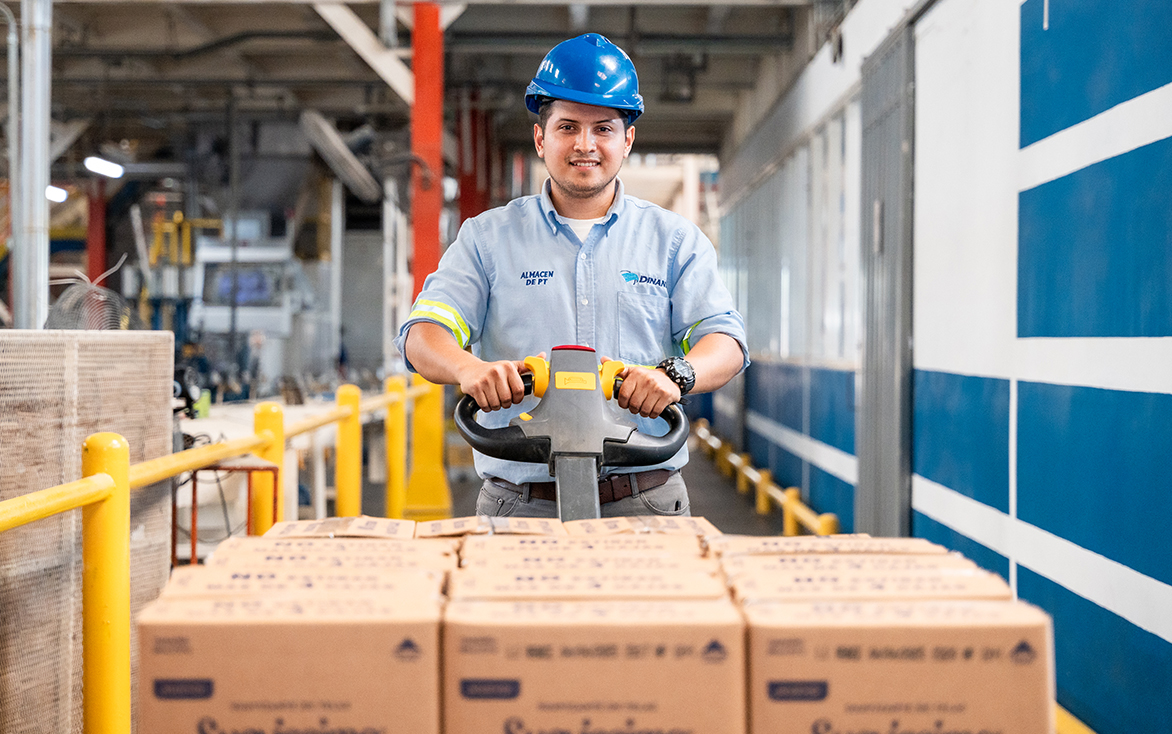
Wastewater discharge from our manufacturing plants is subject to physical, chemical and biological treatment processes to remove contamination parameters based on legal regulations, verified in accordance with constant monitoring and follow-up, both by internal technicians and by certified external laboratories and local authorities. In the Agribusiness Division, we develop zero wastewater discharge policies and as a result of the anaerobic treatment of agro-industrial effluents, we value their high content of organic nutrients. By using this as an organic fertilizer in our plantations and crops, we are able to replace the use of chemical fertilizers, providing organic matter as valuable nutrients and minerals for the soil.
As a component of Dinant's Sustainability Policy and within the Environmental pillar, we have adopted the prohibition of burning activities and use of fire in preparation of plantations or in the disposal of waste, as a commitment to the elimination of polluting emissions into the environment and are harmful to human health. Likewise, in all factories and work centers, and through certified external suppliers, we keep frequent monitoring of fixed and vehicular emissions, in order to keep pollution under control with parameters such as Sulfur Dioxide, Nitrogen Oxides, Material Particulate and Opacity.
At Dinant, pollution prevention is also promoted through the proper management of solid waste, continually developing campaigns and actions to reduce the amount of waste that goes to authorized landfills. Therefore, we have achieved a circular model that uses garbage as a source of income, and keeps materials and byproducts at their highest usefulness. With all this, we generate value that aids in circular economy.
In the Lean Valley area, we have a composting plant which works by taking advantage of empty bunches of oil palm fruit, rachis fiber, boiler ash and sludge from the oxidation lagoons of extraction plants. The processing of components produces organic fertilizer in a process that lasts 12 weeks, a product that allows replacement of 30% of chemical fertilization in oil palm plantations, for the benefit of improving soil quality and controlling environmental impacts.
of compost per year, enriching thousands of hectares of crops
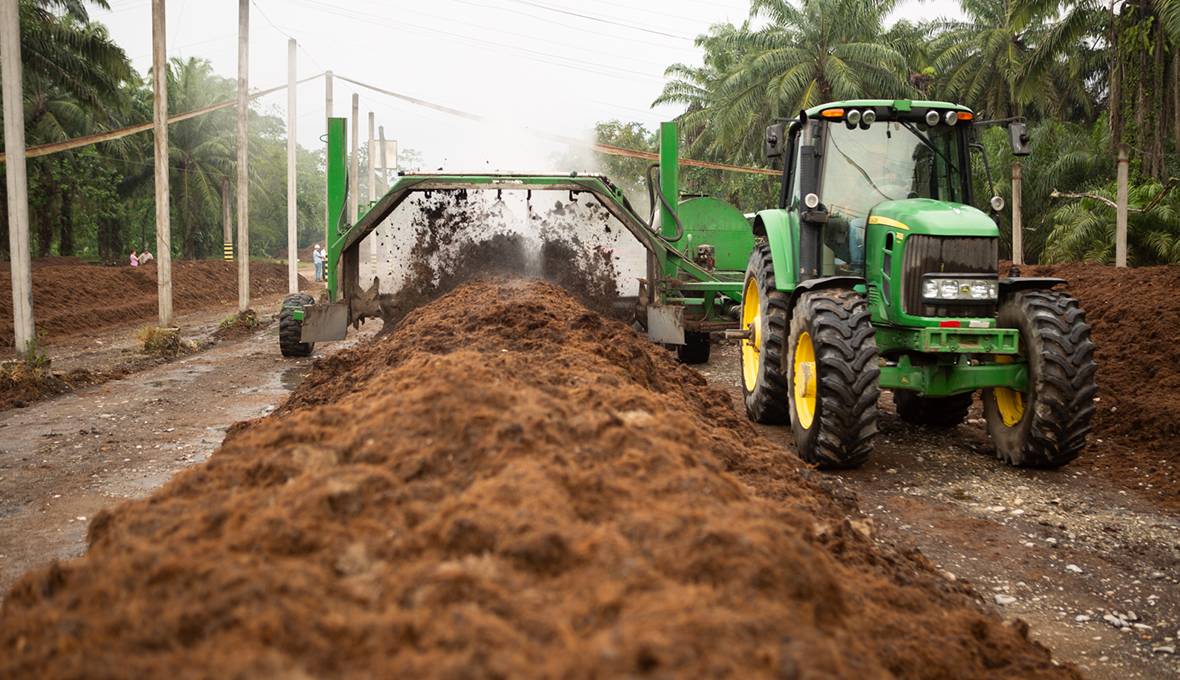
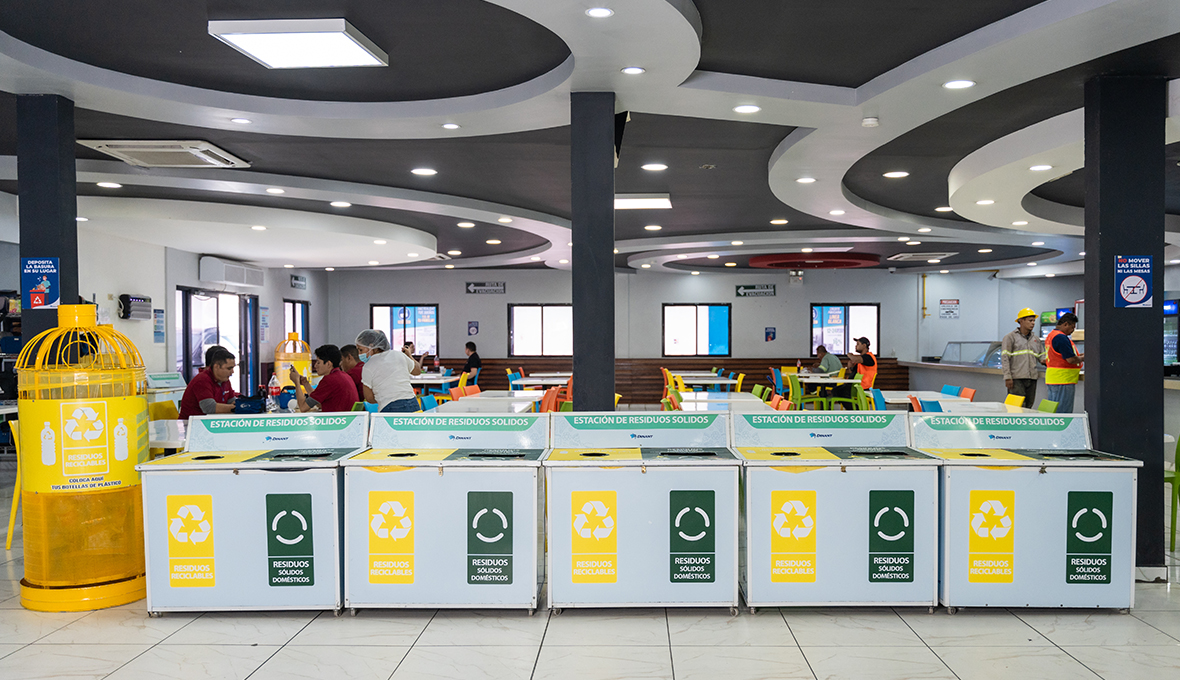
Under a life cycle approach and with the objective of reducing waste that goes to municipal landfills, at Dinant we have monitored and identified the categories of waste generated in production processes and work sites. As part of the solid waste management instructions, the appropriate treatment options for waste until its final disposal have been analyzed, and all categories have been incorporated into the waste management hierarchy, such as:
For all of the above, as well as for proper final disposal, service providers are used and managed who, through authorization from the corresponding authorities, guarantee that environmental impacts are eliminated, according to the impact that each waste entails.
Water consumption in the Company's operations is constantly monitored as part of the rational and responsible use that the company maintains. Likewise, industrial processes implement options to reduce consumption, such as oil extraction plants, where they use technology with efficient equipment that allows lower water consumption in their extraction processes. In manufacturing factories, options for reusing industrial water between processes are analyzed, taking into account the required water quality parameters.
On the other hand, in greenhouse projects for horticultural products, we have managed to increase the consumption of rainwater harvested and stored by the organization, as a renewable natural resource. Wastewater discharge from our manufacturing plants is subject to physical, chemical and biological treatment processes to remove contamination parameters based on legal regulations, verified in accordance with constant monitoring and follow-up, both by internal technicians and by certified external laboratories and local authorities. Organic fertilization: In the Agribusiness Division, we develop zero wastewater discharge policies and as a result of the anaerobic treatment of agro-industrial effluents, we value their high content of organic nutrients. By using this digestate as an organic fertilizer in our plantations and crops, we manage to replace the use of chemical fertilizers, providing organic matter as valuable nutrients and minerals for the soil.

At Dinant we are committed to energy self-sufficiency through the sustainable use of our own renewable sources. For example, in the agribusiness division, we use biomass (fiber, husk or shell) for the cogeneration of electrical energy and likewise the valuation of effluents for biogas generation, with which we cogenerate and displace fossil fuels either with steam or biogas.
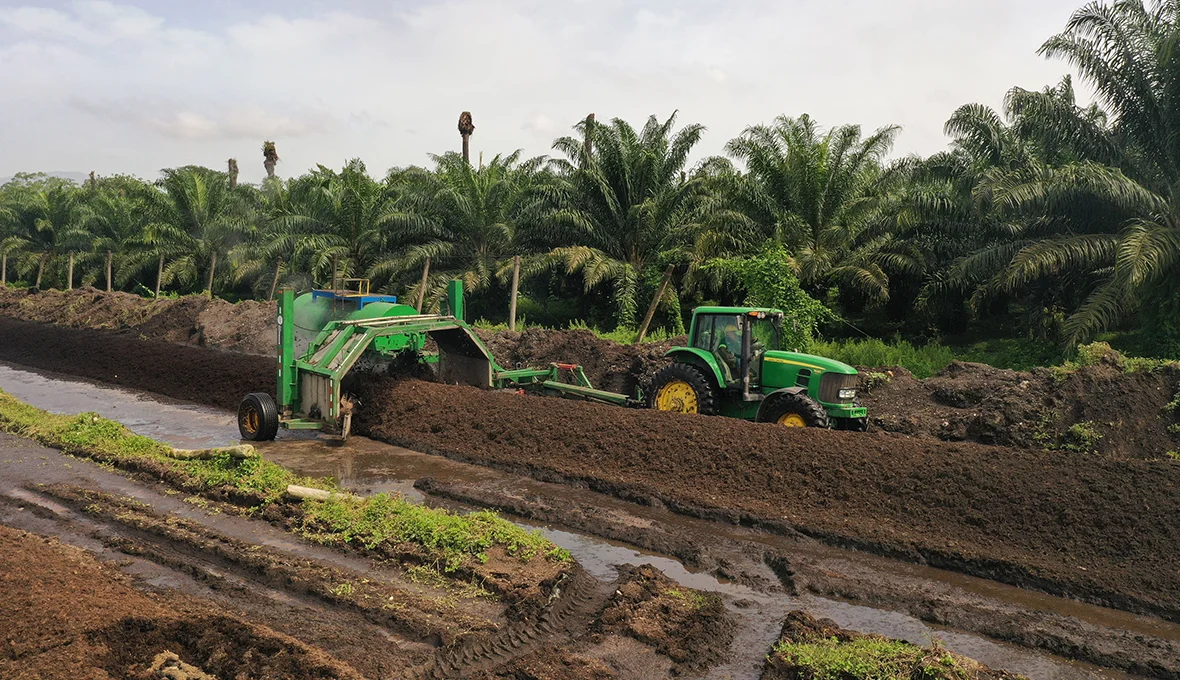
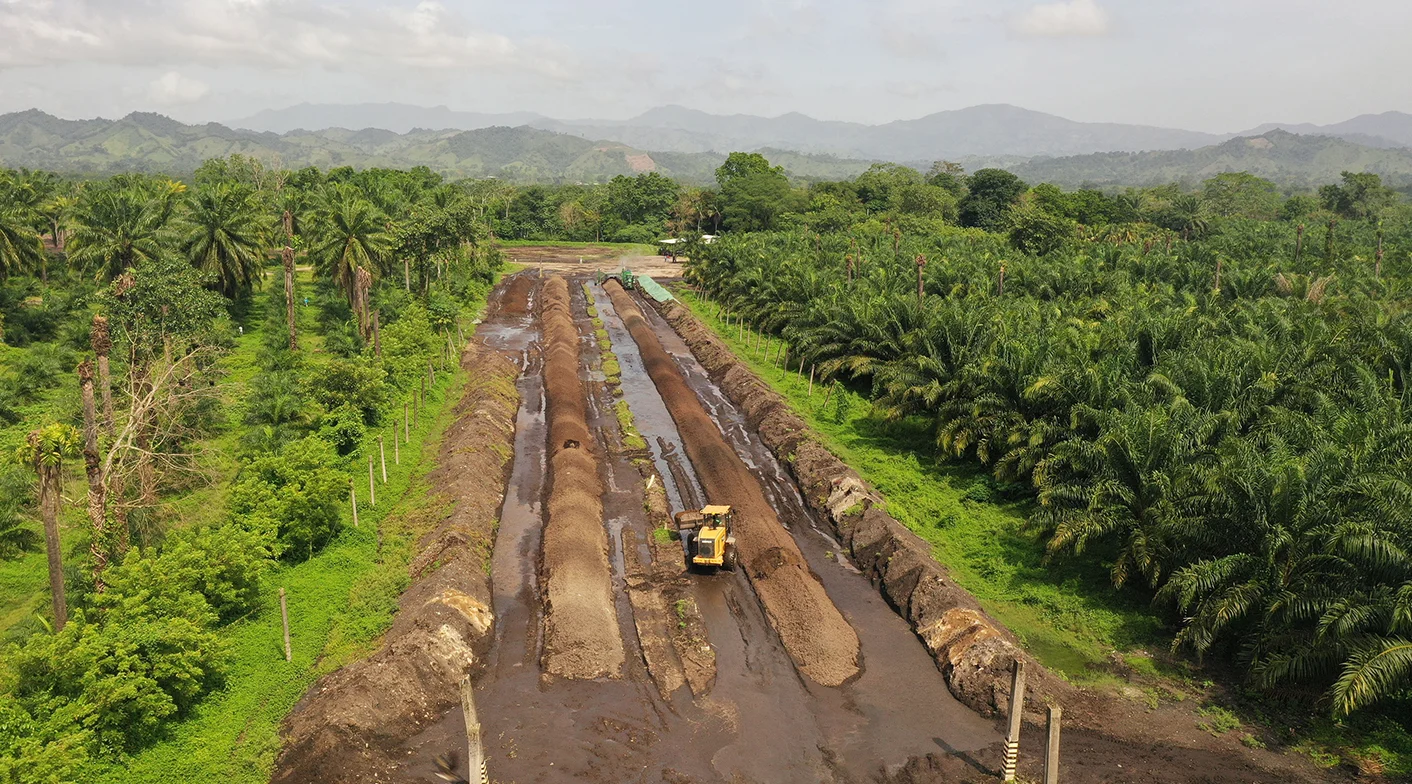
In addition, as a component of Dinant's Sustainability Policy and within the Environmental pillar, we have adopted the prohibition of burning activities and use of fire in preparation of plantations or in the disposal of waste, as a commitment to the elimination of polluting emissions into the environment and are harmful to human health. Likewise, in all factories and work centers, and through certified external suppliers, we keep frequent monitoring of fixed and vehicular emissions, in order to keep pollution under control with parameters such as Sulfur Dioxide, Nitrogen Oxides, Material Particulate and Opacity.